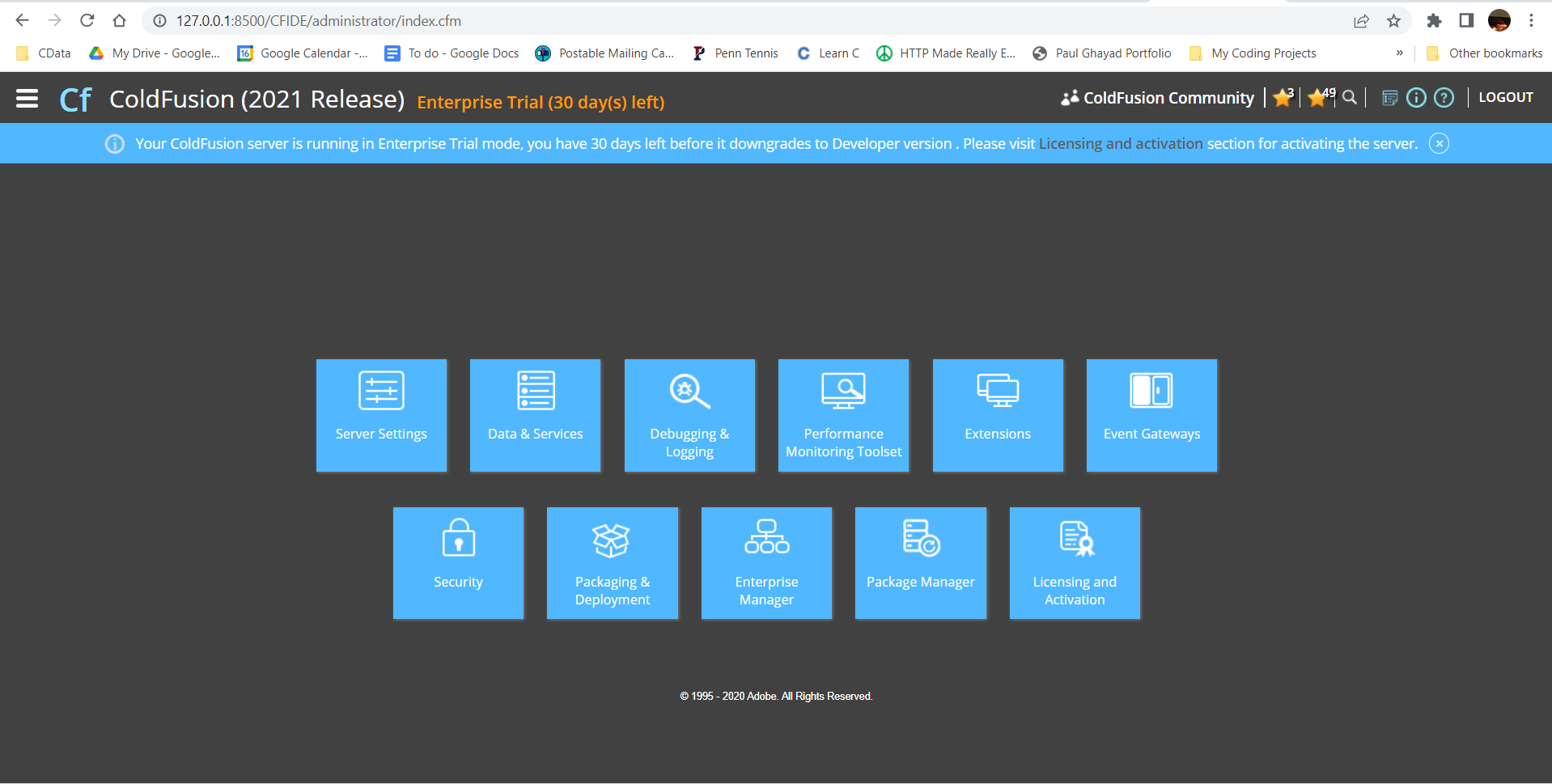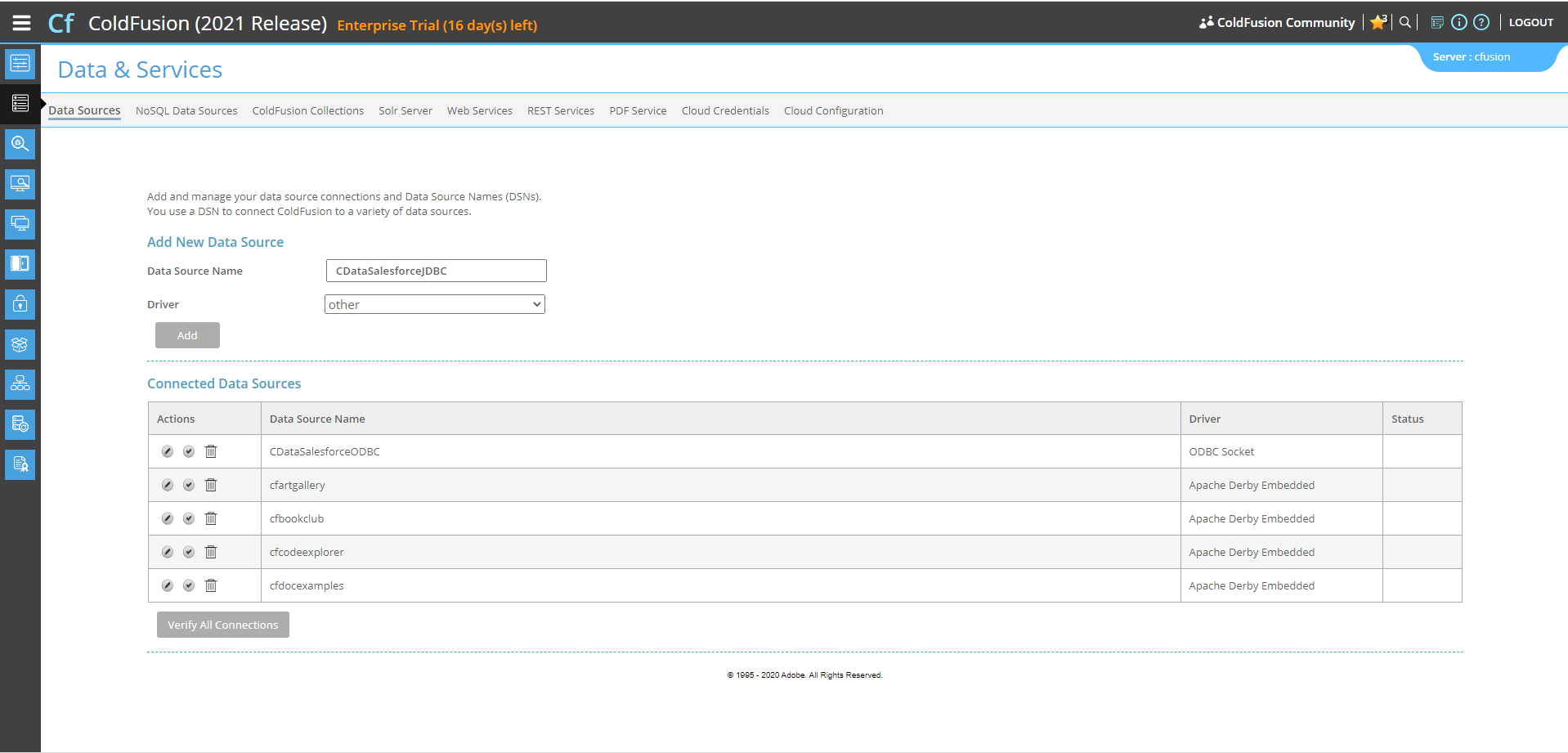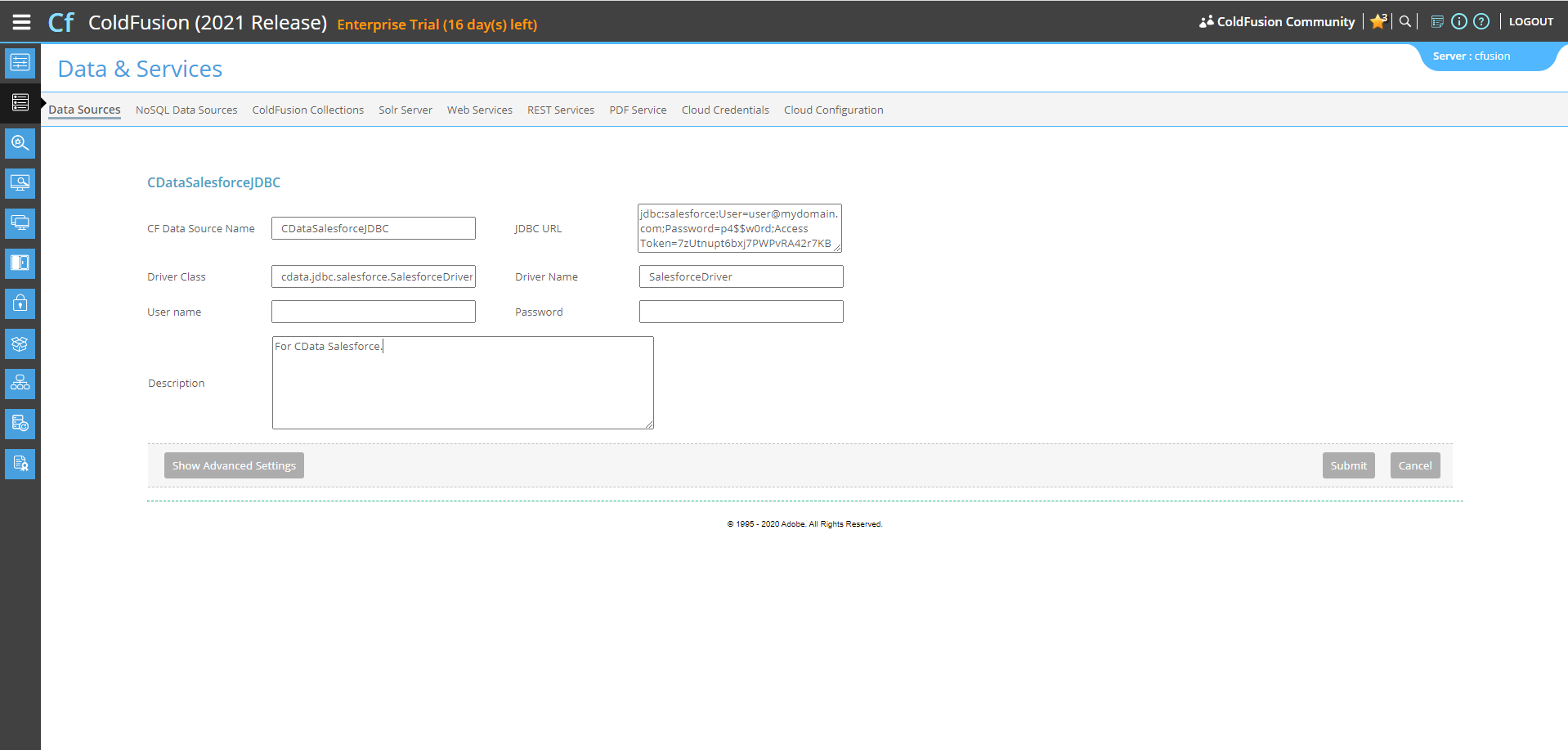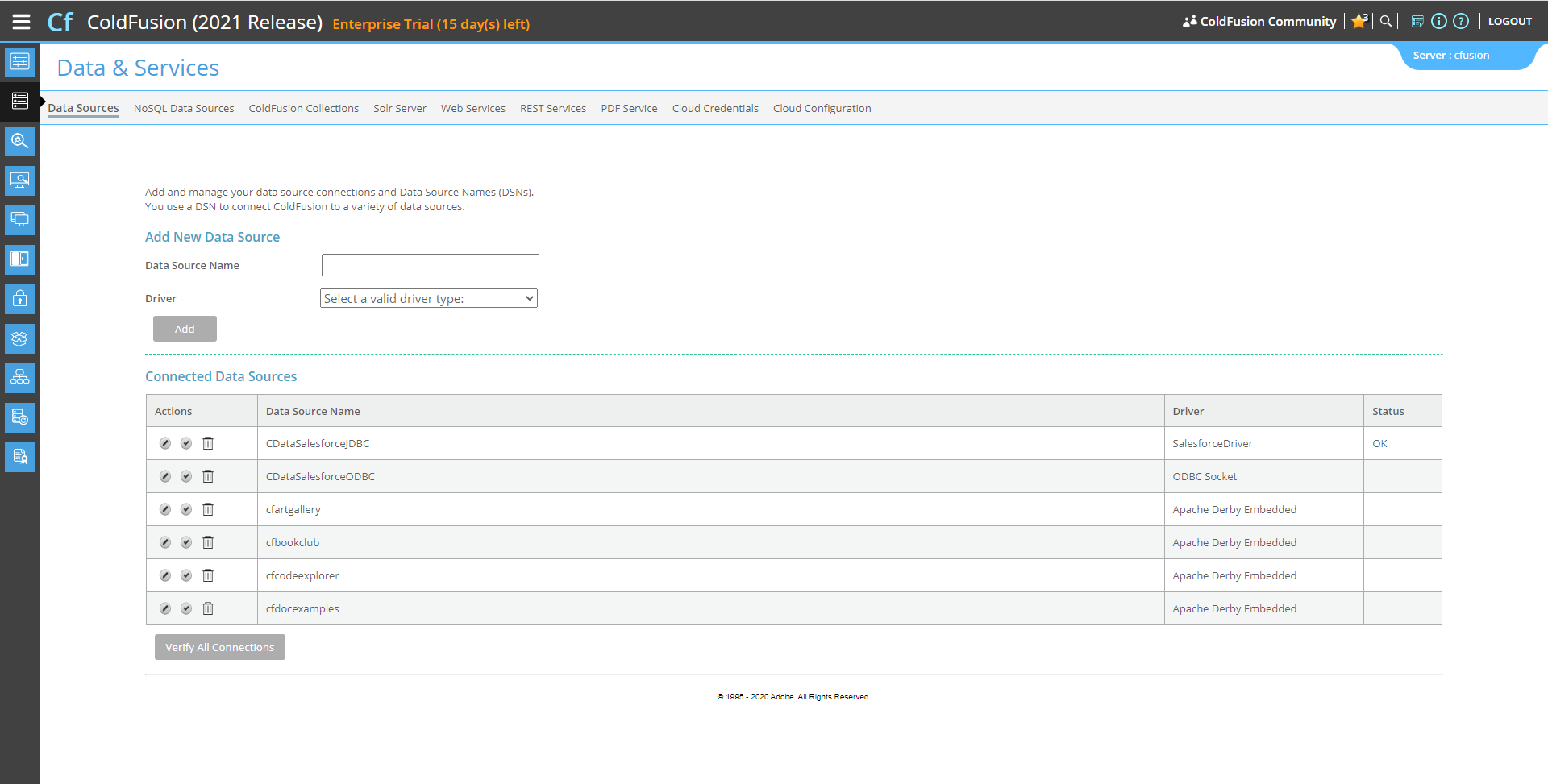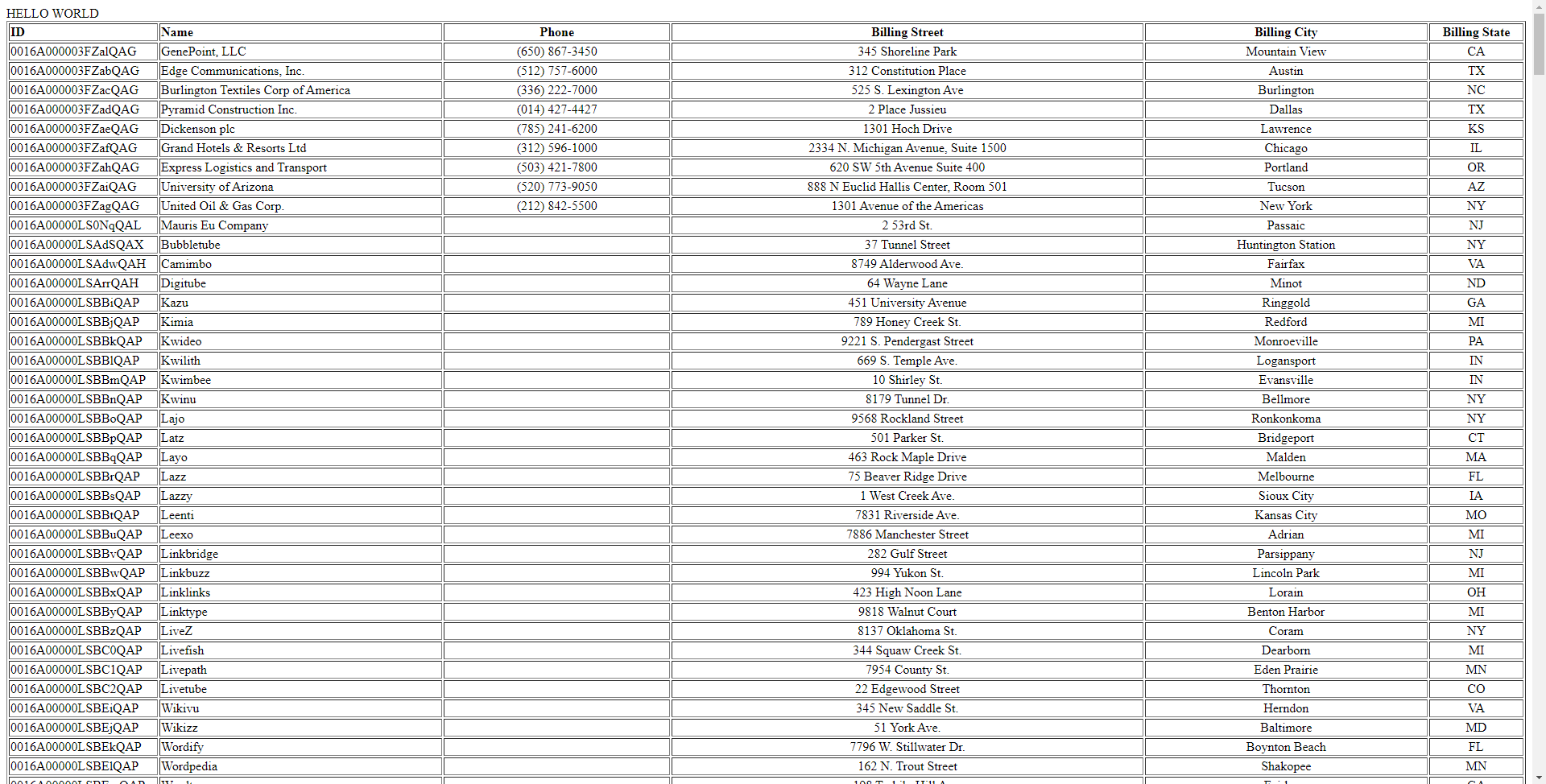Discover how a bimodal integration strategy can address the major data management challenges facing your organization today.
Get the Report →Import Real-Time Paylocity Data in ColdFusion to Build Applications
Use CData JDBC drivers to import and use Paylocity data in ColdFusion.
Adobe ColdFusion is a web and mobile application development platform. It uses its own scripting language, ColdFusion Markup Language (CFML), to create data-driven websites as well as generate remote services, such as REST.
When ColdFusion is paired with the CData JDBC Driver for Paylocity, you can link your ColdFusion web and mobile applications to operational Paylocity data. This allows for your applications to be more robust and complete. This article details how to use the JDBC driver to create a table populated with Paylocity data from within a ColdFusion markup file.
With built-in optimized data processing, the CData JDBC Driver offers unmatched performance for interacting with live Paylocity data. When you issue complex SQL queries to Paylocity, the driver pushes supported SQL operations, like filters and aggregations, directly to Paylocity and utilizes the embedded SQL engine to process unsupported operations client-side (often SQL functions and JOIN operations). Its built-in dynamic metadata querying allows you to work with and analyze Paylocity data using native data types.
Configuring the Connection to Paylocity
You will need a JDBC connection string to establish a connection between Coldfusion and Paylocity.
Set the following to establish a connection to Paylocity:
- RSAPublicKey: Set this to the RSA Key associated with your Paylocity, if the RSA Encryption is enabled in the Paylocity account.
This property is required for executing Insert and Update statements, and it is not required if the feature is disabled.
- UseSandbox: Set to true if you are using sandbox account.
- CustomFieldsCategory: Set this to the Customfields category. This is required when IncludeCustomFields is set to true. The default value for this property is PayrollAndHR.
- Key: The AES symmetric key(base 64 encoded) encrypted with the Paylocity Public Key. It is the key used to encrypt the content.
Paylocity will decrypt the AES key using RSA decryption.
It is an optional property if the IV value not provided, The driver will generate a key internally. - IV: The AES IV (base 64 encoded) used when encrypting the content. It is an optional property if the Key value not provided, The driver will generate an IV internally.
Connect Using OAuth Authentication
You must use OAuth to authenticate with Paylocity. OAuth requires the authenticating user to interact with Paylocity using the browser. For more information, refer to the OAuth section in the Help documentation.
The Pay Entry API
The Pay Entry API is completely separate from the rest of the Paylocity API. It uses a separate Client ID and Secret, and must be explicitly requested from Paylocity for access to be granted for an account. The Pay Entry API allows you to automatically submit payroll information for individual employees, and little else. Due to the extremely limited nature of what is offered by the Pay Entry API, we have elected not to give it a separate schema, but it may be enabled via the UsePayEntryAPI connection property.
Please be aware that when setting UsePayEntryAPI to true, you may only use the CreatePayEntryImportBatch & MergePayEntryImportBatchgtable stored procedures, the InputTimeEntry table, and the OAuth stored procedures. Attempts to use other features of the product will result in an error. You must also store your OAuthAccessToken separately, which often means setting a different OAuthSettingsLocation when using this connection property.
Built-in Connection String Designer
For assistance in constructing the JDBC URL, use the connection string designer built into the Paylocity JDBC Driver. Either double-click the JAR file or execute the jar file from the command-line.
java -jar cdata.jdbc.paylocity.jar

Adding a Data Source and Creating a Table
After configuring the connection, follow the steps below to add the CData JDBC Driver to ColdFusion's lib directory, add a new data source, test the connection, create a ColdFusion markup file, and, finally, make a real-time connection with Paylocity data and display it in a table written in the ColdFusion Markup Language, or CFML:
-
Copy the JDBC Driver for Paylocity and lic file from "C:\Program Files\CData[product_name]\lib" to
"C:\ColdFusion2021\cfusion\wwwroot\WEB-INF\lib".
cdata.jdbc.paylocity.jar cdata.jdbc.paylocity.licNote: If you do not copy the .lic file with the jar, you will see a licensing error that indicates you do not have a valid license installed. This is true for both the trial and full versions.
-
From the ColdFusion administrator interface, choose Data & Services.
![Selecting Data & Services]()
-
Here, we can "Add New Data Source". The data source name can be any name, provided it conforms to the ColdFusion
variable naming conventions. For our JDBC driver, choose "other", then click the "Add" button.
![Adding Data Source Name]()
-
Next, populate the driver properties.
- JDBC URL will need to be in the format: jdbc:paylocity:|connectionString|.
- A typical connection string looks like this:
jdbc:paylocity:OAuthClientID=YourClientId;OAuthClientSecret=YourClientSecret;RSAPublicKey=YourRSAPubKey;Key=YourKey;IV=YourIV;InitiateOAuth=GETANDREFRESH
- The Driver Class is: cdata.jdbc.paylocity.PaylocityDriver
- The Driver Name is arbitrary and simply used to recognize the data source in the ColdFusion administration console.
![Populating driver properties]()
-
Now, test the connection by clicking the check mark to the left of the CDataPaylocityJDBC data source you just created.
When the data source reports an "OK" status, it is ready for use.
![Testing the connection]()
-
Next, create a new ColdFusion Markup file (.cfm) and place it in the wwwroot directory ("C:\ColdFusion2021\cfusion\wwwroot")
for ColdFusion.
The following code queries the data source:
<cfquery name="PaylocityQuery" dataSource="CDataPaylocityJDBC"> SELECT * FROM Employee </cfquery>And a CFTable can be used to quickly output the table in HTML:<cftable query = "PaylocityQuery" border = "1" colHeaders colSpacing = "2" headerLines = "2" HTMLTable maxRows = "500" startRow = "1"> <cfcol header="<b>FirstName</b>" align="Left" width=2 text="FirstName"/> <cfcol header="<b>LastName</b>" align="Left" width=15 text="LastName"/> ... </cftable>Full code, including the HTML portion is available below:<html> <head><title>CData Software | Paylocity Employee Table Demo </title></head> <body> <cfoutput>#ucase("Paylocity Employee Table Demo")#</cfoutput> <cfquery name="PaylocityQuery" dataSource="CDataPaylocityJDBC"> SELECT * FROM Employee </cfquery> <cftable query = "PaylocityQuery" border = "1" colHeaders colSpacing = "2" headerLines = "2" HTMLTable maxRows = "500" startRow = "1"> <cfcol header="<b>FirstName</b>" align="Left" width=2 text="FirstName"/> <cfcol header="<b>LastName</b>" align="Left" width=15 text="LastName"/> ... </cftable> </body> </html> -
Finally, run the code locally in a browser at the default port of 8500. It produces a table populated with Paylocity data!
![Running the code]()
As a note, the CData JDBC Drivers also support parameterized queries using the cfqueryparam element.
For example:
SELECT * FROM Account WHERE name =
Get Started Today
Download a free, 30-day trial of the CData JDBC Driver for Paylocity and start building Paylocity-connected applications with Adobe ColdFusion. Reach out to our Support Team if you have any questions.






